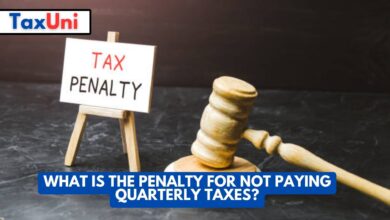The Carried Interest Loophole
The Carried Interest Loophole is a tax provision that allows private equity fund managers to pay an artificially low rate of income taxes on the money they earn from the investments they manage. Here's what you should know about The Carried Interest Loophole.

The Carried Interest Loophole is one of the most controversial provisions in our nation’s tax code. It’s been a target of every President since George W. Bush, but it always manages to sneak back into a tax bill thanks to intense lobbying by Wall Street. Once, a big, sprawling Senate deal to tackle health care and climate change had a provision to close the carried interest loophole. But it was dropped in the final version of the bill after objections from Senator Kyrsten Sinema, a Democratic senator from Arizona who received political donations from the private-equity industry and who has often been cool to such targets.
According to research by the American Investment Council, private equity executives rely on this loophole to earn an average of $15 billion a year. In turn, these firms pay lower-than-normal tax rates on their profits and save millions of dollars for themselves and their shareholders. It’s a loophole that benefits a very small number of people but has enormous ramifications for our economy and the entire country. The majority of Americans think it should be closed.

What is Carried Interest?
Carried interest is a form of compensation paid to investment executives like private equity, hedge fund, and venture capital managers. It is a form of incentive compensation and typically represents around 20% of a fund’s profits.
The tax treatment of carried interest remains one of the most contentious elements of the US tax code. Currently, it is classified as a long-term capital gain, meaning that private equity and venture capital managers can pay far less taxes than they otherwise would.
This has led to an increasing number of politicians, including many Democrats, wanting to close the loophole. Some have proposed bills that would change how this income is taxed.
For example, a bill called the Ending, the Carried Interest Loophole Act, introduced in the Senate by Senator Ron Wyden, proposes taxing this type of compensation as ordinary income. It has the potential to generate over $63 billion in new tax revenues for the United States.
The most common form of this compensation is a portion of the fund’s profits that is given to the general partner in return for his or her management services. This is often referred to as the “carried interest” or the “profit interest” and is an excellent way to incentivize fund managers to achieve outstanding performance. However, it is important to note that this compensation is not guaranteed. Rather, it can be forfeited when the fund fails to meet its investment objectives.

Who Benefits from the Carried Interest Loophole?
The carried interest loophole benefits wealthy private equity and hedge fund managers by allowing them to tax their investment income as capital gains at a lower rate than ordinary income. This allows them to pay less tax than other American workers and can mean that a manager earning $400,000 per year will pay $1.7 million in taxes instead of paying $4,700,000.
According to Americans for Financial Reform, the private equity industry is the largest beneficiary of the loophole, with executives at firms like KKR taking home an average of $26 million a year by taxing their earnings as investment income rather than ordinary income. The group says this is a “legitimate concern” that should be addressed.
Critics argue that the carried interest loophole is a tax scam that benefits the very rich at the expense of middle-class taxpayers. They say that the loophole misclassifies investment management income as a form of salary, allowing fund managers to treat their earnings as long-term capital gains.
Some critics also point to the fact that the loophole’s benefits are disproportionate to the amount of money that it pays to executives. In particular, it benefits a small number of managers who can take advantage of the qualified small business stock (QSBS) exclusion.
The carried interest loophole has remained a hot topic since 2007, with President Barack Obama, Donald Trump, and Joe Biden vowing to close it during their campaigns. However, because it has been protected by lobbying by the investment management industry, it has survived and wriggled its way into tax law. If the loophole is finally closed, it will be a welcome and much-needed step toward closing the gap between the rich and everyone else in America.





